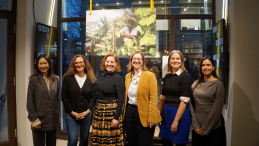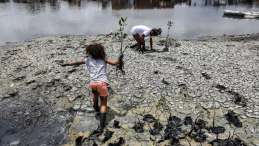Urban sprawl, landscape fragmentation, and habitat network connectivity are interlinked spatial phenomena that present significant challenges to sustainable development in rapidly urbanizing regions, particularly in the Global South. In Sierra Leone, these processes have intensified due to population growth, informal settlements, and infrastructure expansion, yet remain understudied in an integrated manner. Existing literature largely treats these components in isolation or in limited pairwise combinations, leaving critical gaps in understanding their cumulative impacts on environmental resources.
This research aims to assess the spatial and temporal dynamics of urban sprawl, landscape fragmentation, and habitat network connectivity in Sierra Leone and to examine how these patterns influence environmental resource demand and management. Guided by a Resource Nexus framework, the study will review and synthesize existing data sources, tools, and modeling approaches for quantifying these phenomena, evaluate spatial and temporal changes at the province, district, and city levels, and identify the primary drivers of change and propose a framework for sustainable environmental and landscape planning.
The study will provide novel, context-specific insights into how urban expansion is reshaping ecological systems and resource flows in Sierra Leone. Its findings will inform more effective land-use policies and decision-making processes, particularly in the face of limited data and planning capacity. By integrating urban sprawl, landscape fragmentation, and habitat network connectivity into a unified analytical model, this research supports the achievement of key Sustainable Development Goals, enhances academic understanding of urban ecological change, and promotes holistic strategies for environmental governance grounded in the Resource Nexus approach.
This project is funded by the German Academic Exchange Service (DAAD) under the NEXtra (Network of Excellence for Training on the Resource Nexus) programme at the United Nations University Institute for Integrated Management of Material Fluxes and of Resources (UNU-FLORES).






